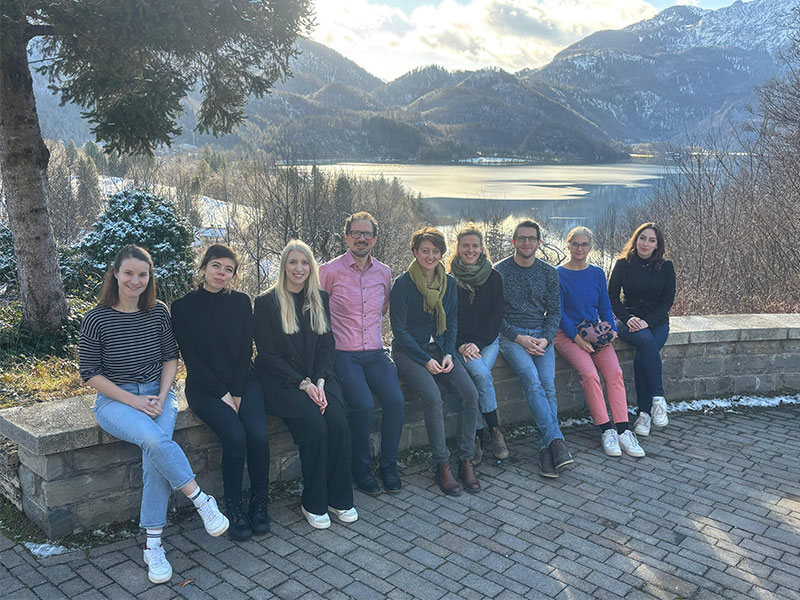
The Munich Science Communication Lab is a joint non-profit initiative of scientists and science communicators that aims at bringing together research about and practice of science communication.
Contact us: info@mscl.de
Stakeholders
Staff and Leadership
Dr Julia Serong
Research Director / Executive Board Member / Co-Applicant
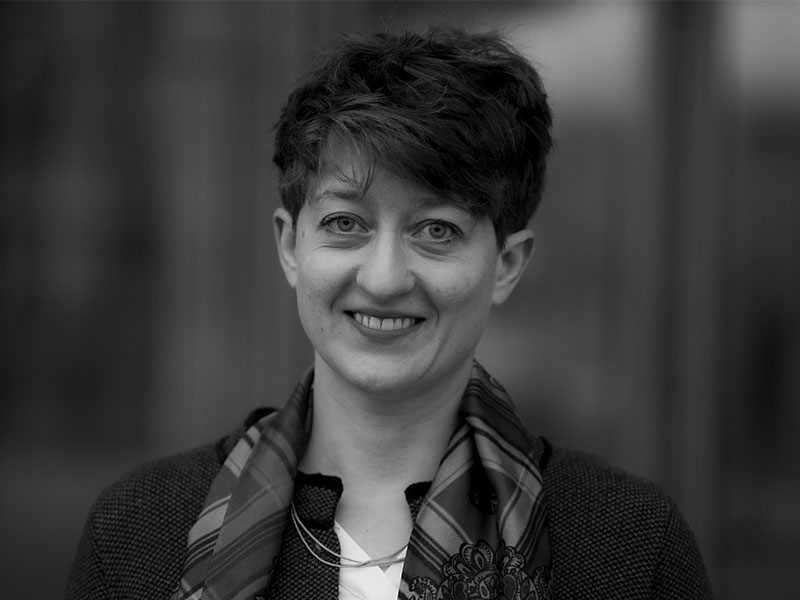
Julia Serong is the research director at the Munich Science Communication Lab. Since December 2017, she has been a research associate at the Department of Media and Communication. Until 2021, she was the ad hoc working group “Facticity of the World” coordinator at the Bavarian Academy of Sciences. From 2013 to 2020, she was a research associate (project management) at the Institute of Journalism at TU Dortmund University. From 2009 to 2014, she was a research assistant at the Institute for Media and Communication Studies at the FU Berlin. There she received her Ph.D. (Dr. phil.) on “Media Quality and Audience” in 2014. Julia Serong studied communication science, economic policy, and English Studies at the WWU Münster.
Why is this project important to you?
Over the last few years, I have been doing a lot of work on science communication, and the exchange with practitioners has always been important to me. I have learned so much about the basic questions, problems, and challenges of science communication. And I have also noticed how great the need for research on science communication is.
With the MSCL, a dream becomes a reality: We can research science communication and help shape it. The MSCL gives us the unique opportunity to expand and deepen our fundamental knowledge of science communication and to accompany and improve the development of new formats. With the topic of Planetary Health, we are also taking on a challenge for communication science: to think public communication about the environment and health together, at the intersection of science, politics, and economics. This interdisciplinarity and diversity of perspectives that we live at MSCL mean a lot to me.
E-mail: julia(dot)serong(at)ifkw(dot)lmu(dot)de
Dr Bernhard Goodwin
Executive Director / Executive Board Member / Co-Applicant
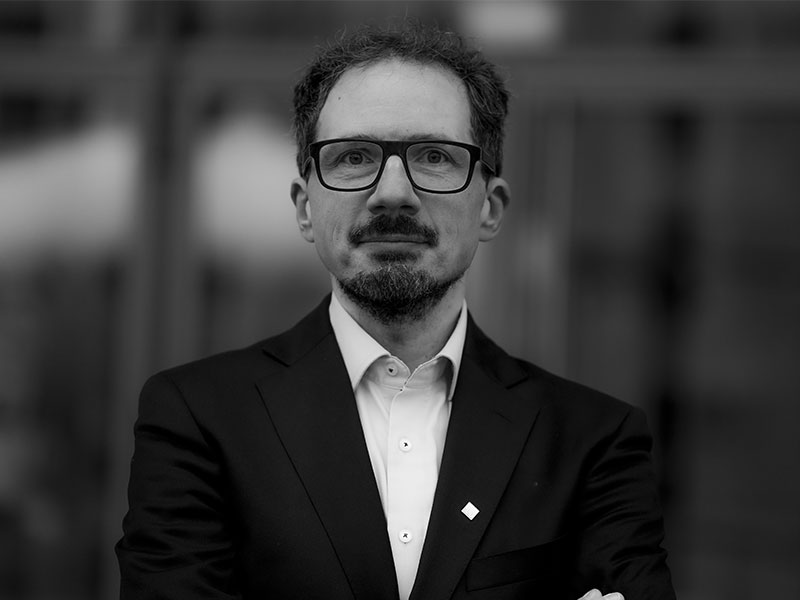
Bernhard Goodwin is Managing Director of the Institute for Communication Science and Media Research at Ludwig Maximilian University in Munich. He studied communication science, psychology, computer science and law, and earned his doctorate on the transfer of knowledge to society using the example of forestry science.
Why is this project important to you?
This project is important to me firstly because it is a very pressing issue with high relevance. Secondly, it is an issue that involves complicated problems for which there are no simple solutions. We call this “wicked problems” and that’s why science communication is a bit more difficult than with other topics. Thirdly, science communication is actually part of the phenomenon itself. Because when you’re talking about how the health and the environment of our planet are interrelated; how people think about it and get into the conversation plays an important role.
E-mail: goodwin(at)lmu(dot)de
Dr Fabienne Will
Science Communication Coordinator
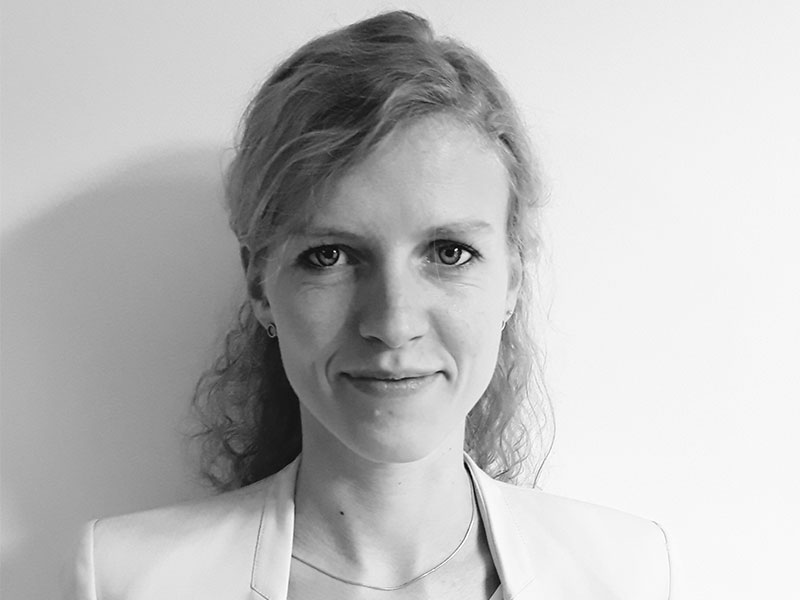
Until 2022 she was Scholar in Residence at the Research Institute for History of Science and Technology at the Deutsches Museum, working on the Anthropocene and the history of environmental perception. Between 2017 and 2020, she was a research associate there. During this time, she was part of the DFG research group “Practicing Evidence – Evidencing Practice”. She received her PhD in history of science on “Evidence Practices at the Interstice of Sciences, Humanities, and the Public: The Anthropocene Debate” at the LMU Munich in 2020. Between 2018 and 2020 she was part of the Doctoral Program Environment and Society at the Rachel Carson Center in Munich. Fabienne Will studied History, German and Italian studies at the LMU.
Why is this project important to you?
During my doctoral studies, I dealt intensively with the Anthropocene and realized how important it is to take content out of the academic circle and communicate it to the public when it comes to achieving change and preserving the habitability of planet Earth for humans. There is a great need for science communication formats that succeed in communicating global challenges in a way that connects to the public`s experience. With the MSCL, we have the opportunity to take science communication a big step forward and contribute to a planetary healthy future.
E-mail: f(dot)will(at)deutsches-museum(dot).de
Sarah Stiller, M.A.
Science Communication Coordinator
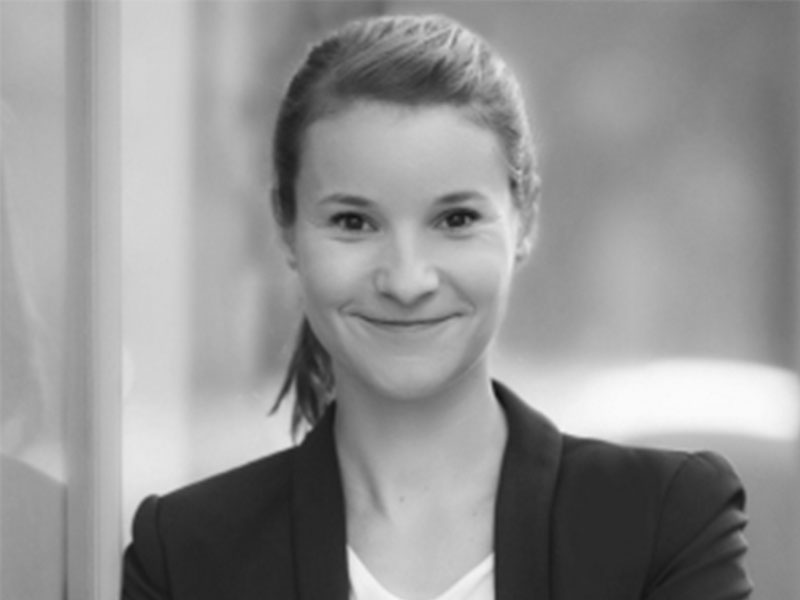
Sarah Stiller completed a bachelor’s degree in media and communication science at Uni Augsburg in 2011 and a master’s degree in Communication Science at LMU Munich in 2013. She has worked in online communication in the field of culture and film and as a freelance writer with a focus on sustainability topics. She joined the MSCL team in October 2022 as Science Communication Coordinator at the intersection with the Chair of Public Health and Health Services Research.
Why is this project important to you?
Planetary health is a highly relevant topic. With our everyday behavior, humans endanger the future of our planet’s and our own health. I am interested in science communication as a tool to make scientific knowledge more accessible and understandable to a broader public and empower different groups to make changes. It is a great opportunity to be able to be part of this movement – not only on a private level, but on a professional, too.
E-mail: sarah(dot)stiller(at)ibe(dot)med(dot)uni-muenchen(dot)de
Sebastian Brumann
Science Communication Coordinator
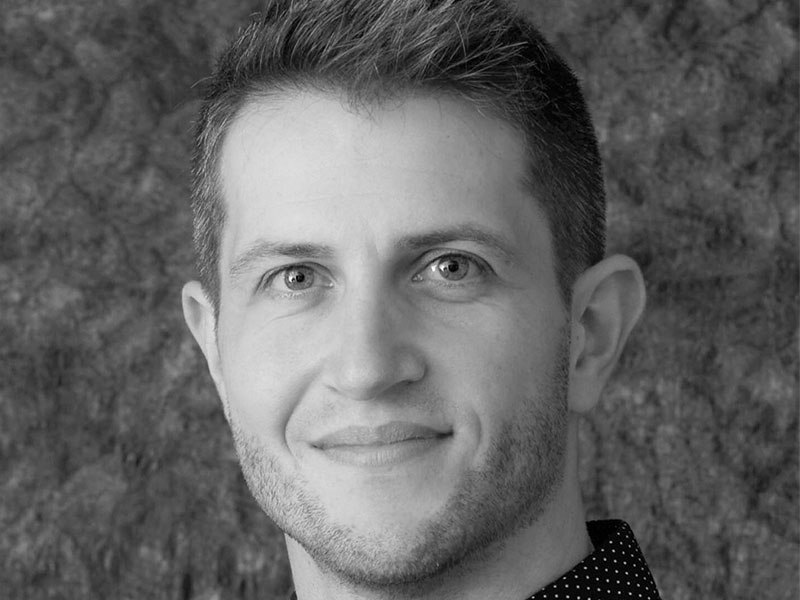
Sebastian Brumann studied Geography and German studies at the University of Augsburg and graduated in 2016 with the Erstes Staatsexamen. Between 2016 and 2023, he was a research associate at the Chair of Geography Education at the University of Augsburg. During this time, he worked in the interdisciplinary research project BAYSICS, dealing with citizen science on regional implications of climate change in Bavaria. In his PhD thesis, Sebastian Brumann developed and evaluated a climate change education concept for upper secondary schools based on the Inquiry-Based Learning Approach.
Why is this project important to you?
Planetary Health is a rather new concept to describe a timeless fact: We as humans are inseparably connected with the world we live in and, beyond that, our health and wellbeing are directly dependent on the health of the planetary systems. Often, these complex interlinkages are not visible or tangible in our everyday lives. All the more important is a way of science communication that enables people to experience and become aware of this interconnectedness. With my work, I want to contribute to creating such experiences, bringing planet and people a bit closer to each other.
E-mail: s(dot)brumann(at)deutsches-museum(dot)de
Monica Déchène, M.Ed.
Evaluation Coordinator
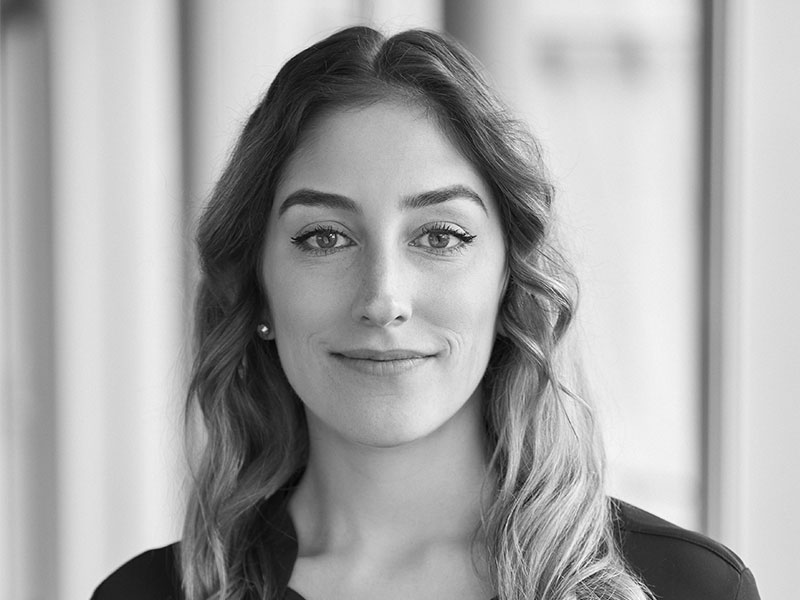
Monica Déchène completed her Bachelor’s degree in 2020 and Master’s degree in 2023 in Health and Nursing Sciences, with a minor in Political Science and Sociology at the Technical University of Munich (TUM). During her studies, she worked in the field of public relations at TUM and was a student assistant for the PISA study. Since 2023, she has been engaged in educational research at the Center for International Student Assessment, focusing on science communication with teachers. In addition to working as an evaluation coordinator at the MSCL, she is also doing her doctorate at TUM in the field of learning in museums.
Why is this project important to you?
In the world of research, it’s not just about exploring new ideas; it’s also about effectively communicating those ideas and findings to the right audiences. When it comes to pivotal subjects like Planetary Health, the ability to reach every individual and achieve a lasting impact is of great importance. In my own research on evaluating science communication about Planetary Health, I aim to derive impactful outcomes for both research and practice, offering special value to teachers and students.
E-mail: monica(dot)dechene(at)ifkw(dot)lmu(dot)de
Dr Jana Laura Egelhofer
Postdoc
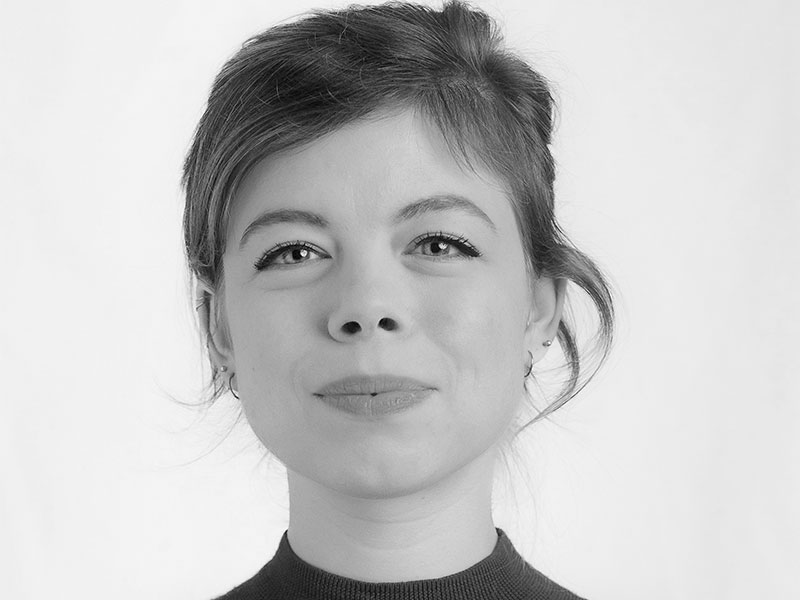
Until December 2022, Jana Laura Egelhofer was a postdoc and scientific program coordinator at the Department of Communication at University of Vienna. She received her Ph.D. in 2021 from the University of Vienna. In her doctoral thesis, she investigated the content and consequences of the discourse around “fake news.” In 2019, she was a visiting scholar at the University of Amsterdam. Jana Laura Egelhofer studied Communication at the University of Vienna.
Why is this project important to you?
In my research, it has always been a priority for me to work on issues that I consider socially relevant. Planetary health, which subsumes many of the most crucial challenges for humanity, is therefore of great importance to me. I am especially interested in how complex and uncertain scientific issues can be communicated in ways that benefit society, and how perceptions of scientific actors and outputs are shaped by public discourses.
E-mail: Jana(dot)Egelhofer(at)ifkw(dot)lmu(dot)de
Anna Gaul, M. A.
PhD Student
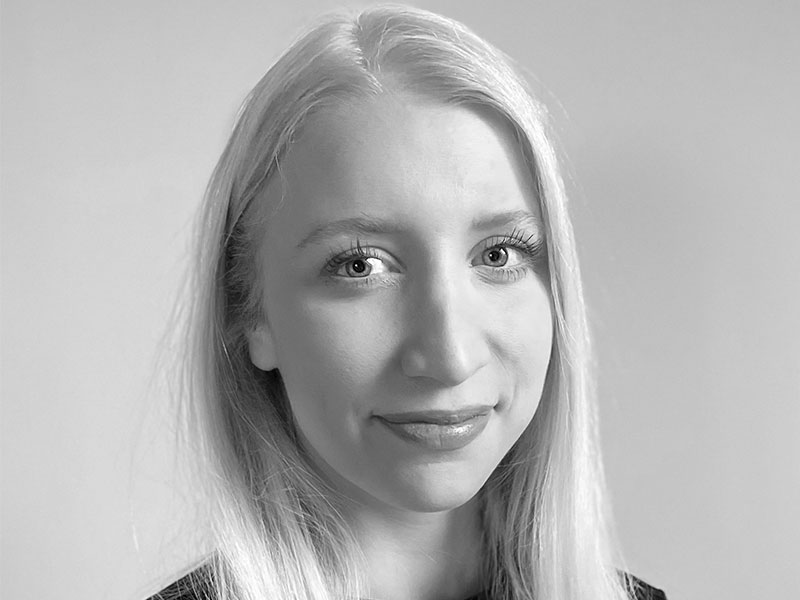
Anna Gaul completed her bachelor’s and master’s degree in communication studies at LMU Munich. During her master’s studies, she worked as a student research assistant in the junior research group “Digital Democratic Mobilization in Hybrid Media Systems (DigiDeMo)” at LMU.
Why is this project important to you?
Numerous environmental changes, such as the climate crisis or the pollution of land, water, and air, threaten the health of the planet and society. Planetary Health is therefore a topic of high urgency and relevance that concerns us all. However, communicating about it is challenging because it involves ‘wicked problems’ characterized by interdependencies, uncertainty, and conflicting stakeholder interests. This makes research on science communication all the more important, both on the side of the communicators and on the side of the recipients. Furthermore, the MSCL enables an exchange with different disciplines and fields of application, which I see as a great opportunity.
E-mail: Anna(dot)Gaul(at)ifkw(dot)lmu(dot)de
Jule M. Schmitz
Researcher

Jule M. Schmitz has a background in Health Communication and Public Relations. She is currently engaged in various research projects to promote behaviours that are relevant for achieving planetary health (i.e., heat adaptation behaviours, healthy eating, physical activity, and vaccination behaviours). She does this at the Chair of Public Health and Health Services Research of the Ludwig-Maximilians University and at the Chair of Health Communication of the University of Erfurt. She is also a member of the Institute for Planetary Health Behaviour.
Why is this project important to you?
The MSCL explores different communication approaches – such as exhibitions, influencers as multipliers, workshops in local communities – to interact with the population, inform them about planetary health issues and motivate them to act. Since the health of our planet is linked to human health, we need behavioural changes sooner rather than later to adapt to and counteract environmental changes. The hands-on mentality of the MSCL enables the evaluation of various innovative communication efforts and thus advances science communication in the field of planetary health.
E-mail: jule(dot)schmitz(at)ibe(dot)med(dot)uni-muenchen(dot)de
Claudia Seelmann, M.A.
Project Coordinator
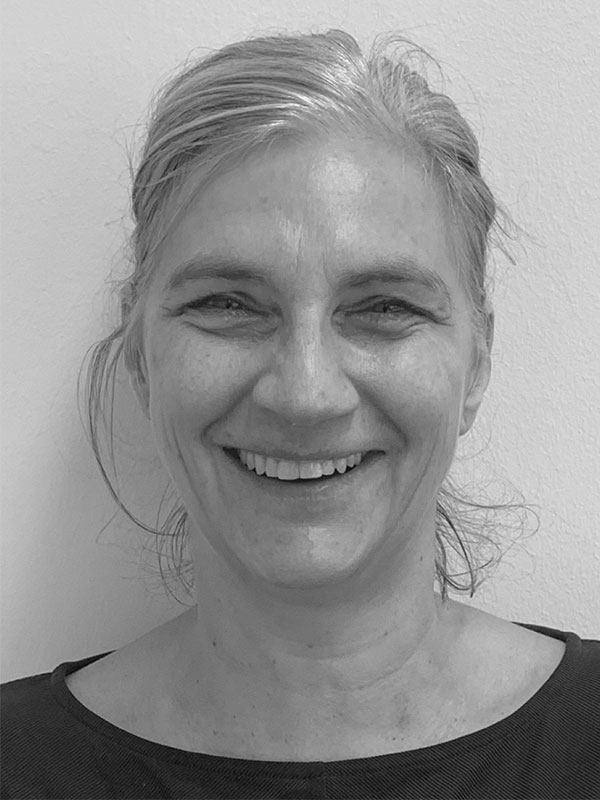
Claudia Seelmann studied art history at the LMU Munich and completed her master’s degree in 1994. Afterwards she worked for various cultural institutions, e.g., at Munich Re, with the Siemens Cultural Program, and Sammlung Goetz. Since 2024 she has been project coordinator in the MSCL administration office at the LMU Department of Media and Communication.
Why is this project important to you?
Our health is inextricably linked to the health of our planet. The concept of Planetary Health recognises these connections and is committed to sustainable solutions that benefit both people and the environment. There is therefore a great need for research in the field of science communication on the subject of Planetary Health, also in order to find out and understand people’s opinions.
E-mail: claudia(dot)seelmann(at)lmu(dot)de
Patricia Fröhlich
Student Assistant
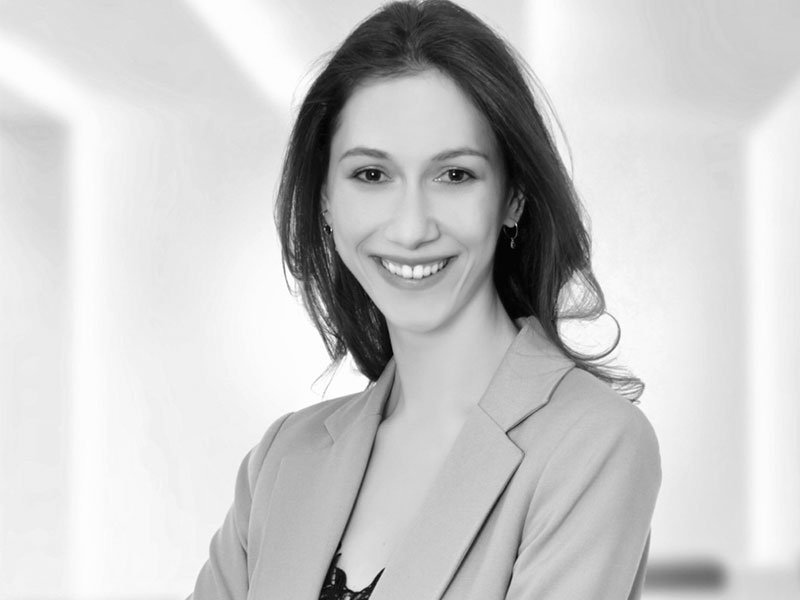
Patricia Fröhlich currently studies at the LMU in Munich to become an educational psychologist and secondary-school teacher for the subjects English, ethics, and psychology. She has previously worked at the LMU’s Department of Developmental Psychology and Educational Psychology where she helped conduct a study on the impact of language on the empathy levels of young children.
Why is this project important to you?
For my psychological thesis I researched about the consequences of the COVID-19 pandemic for young children and their parents. I found that one’s mental health can be highly influenced by an optimistic or pessimistic outlook on global health issues. Public science communication plays a huge role in shaping that outlook and thus also the perception and the understanding of planetary health in general. I want to know more about that process. As a future teacher I am also motivated to learn about how to best discuss health related topics with children in the classroom.
E-mail: patricia(dot)froehlich(at)campus(dot)lmu(dot)de
Lara Osin
Student Assistant
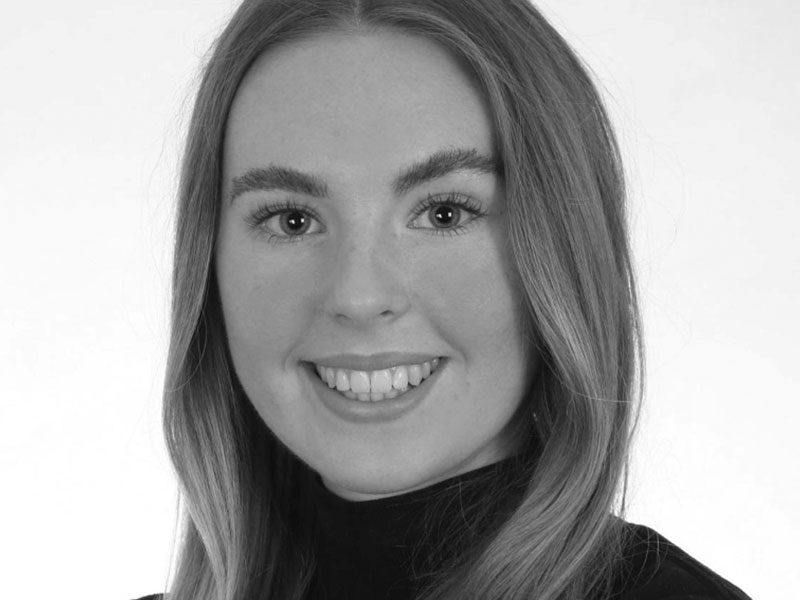
Lara Osin studies communication science at LMU and writes articles on topics such as art, culture and politics for the student newspaper “Philtrat”.
Why is this project important to you?
Science communication is important because it strengthens democracy by empowering the public to make informed decisions, promotes trust in science, and enhances education. Good scientific communication is essential, especially because society has to face big issues such as climate change, pandemics and globalization.
E-mail: lara(dot)osin(at)campus(dot)lmu(dot)de
Antonia Louisa Grosse
Student Assistant
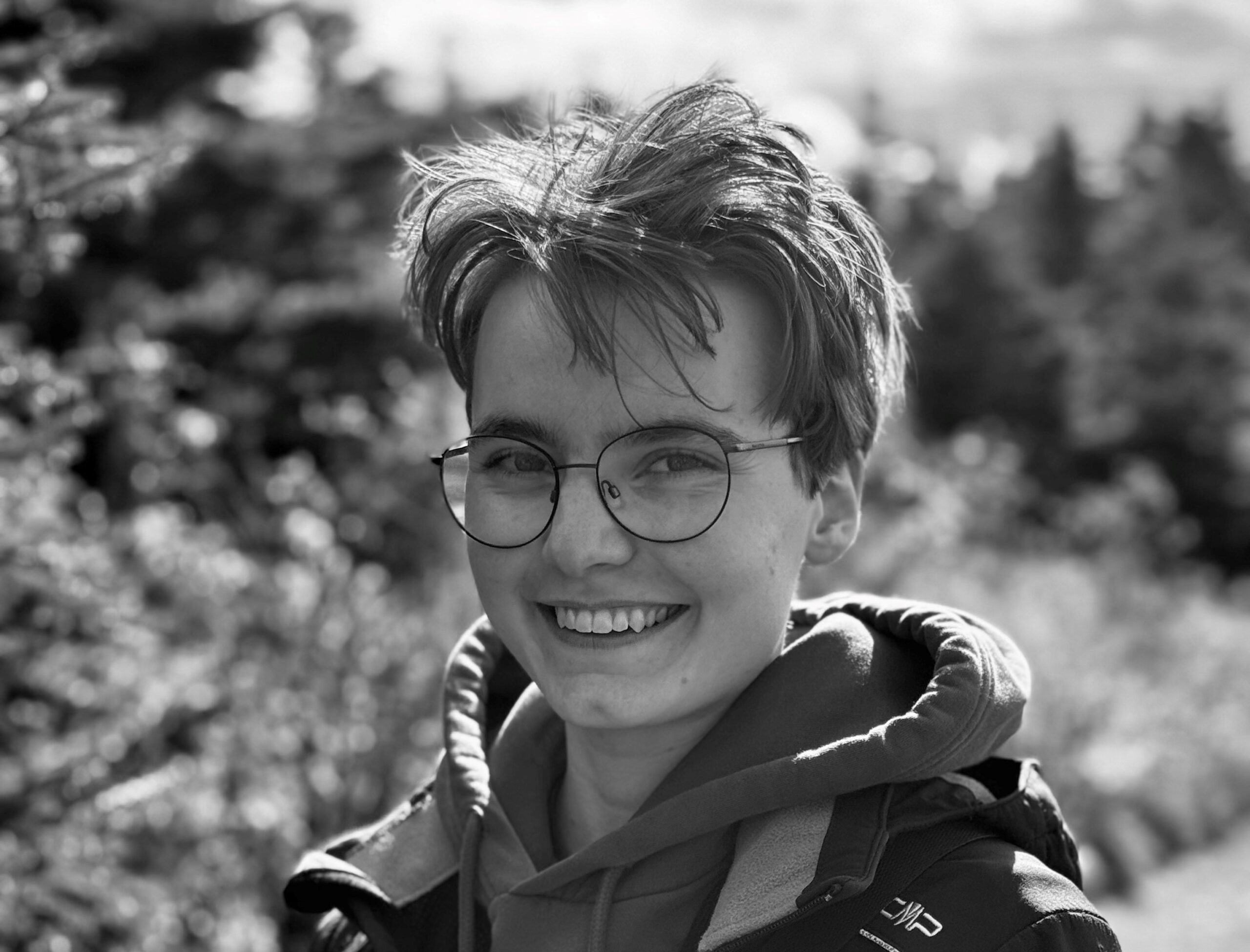
Toni is currently studying political science B.Sc. at the Technical University Munich (TUM).
Why is this project important to you?
The project is important to me because effective science communication can help to make science accessible and understandable to everyone, which is particularly important when dealing with climate issues. Science communication is also important to provide decision makers, for example in politics, with scientific facts.
E-mail: antonia(dot)grosse(at)ifkw(dot)lmu(dot)de
Johanna Scabell
Student Assistant
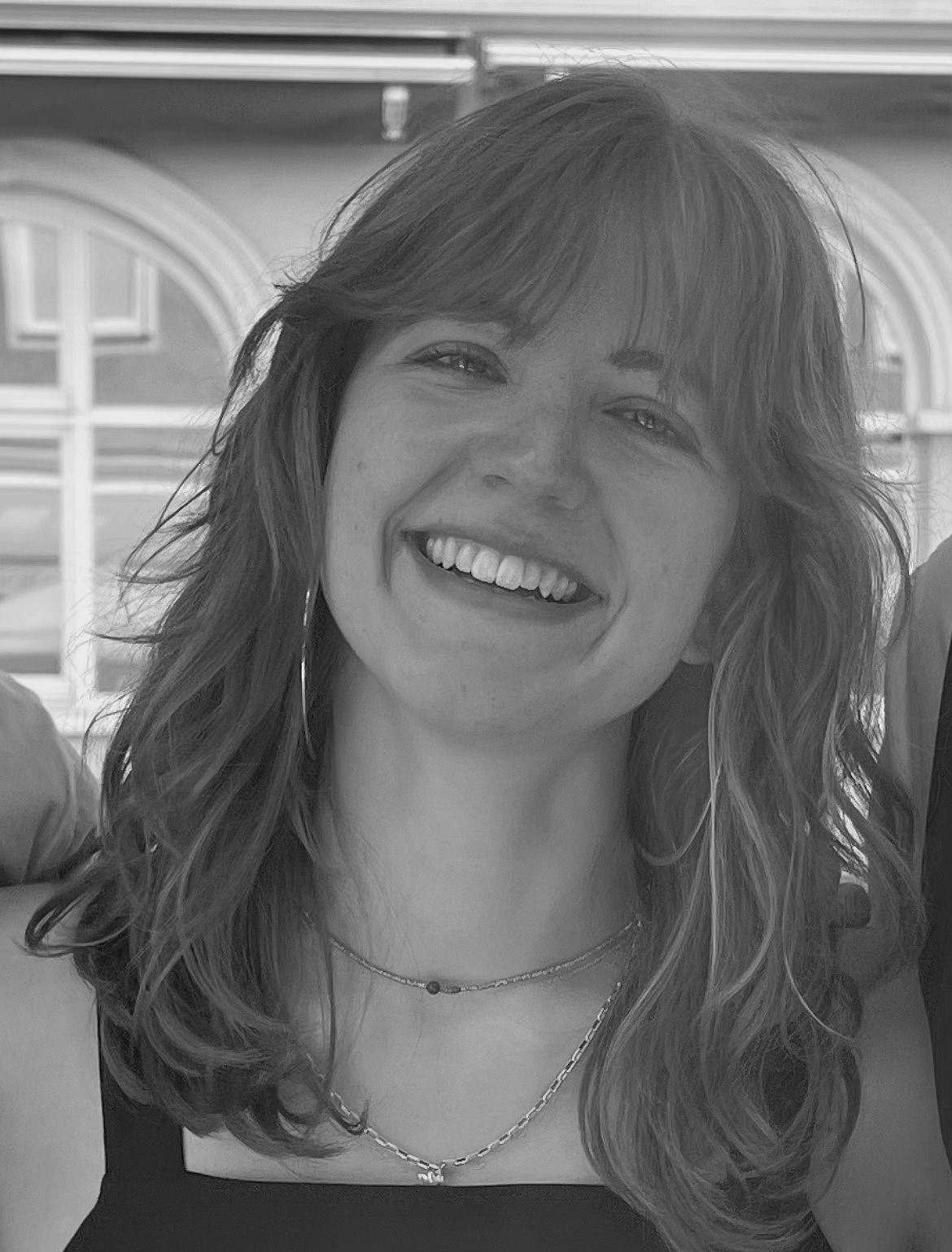
Johanna Scabell is currently studying Public Health at LMU Munich, where she previously completed her Bachelor’s degree in Sociology with a minor in Communication Science.
Why is this project important to you?
I think science communication plays an essential role in making research accessible and relevant beyond academic circles. This is particularly important for complex and urgent topics like Planetary Health, where health, environmental, and social issues are closely linked. Clear, accessible, and engaging communication helps people understand these interconnections—and act accordingly. With my background in both social sciences and communication, I see it as essential to not only generate knowledge but also to make it meaningful and useful for the broader public.
E-mail: johanna(dot)scabell(at)campus(dot)lmu(dot)de
Members of Executive Board
Prof. Dr Hans-Bernd Brosius
Executive Board Member / Co-Applicant
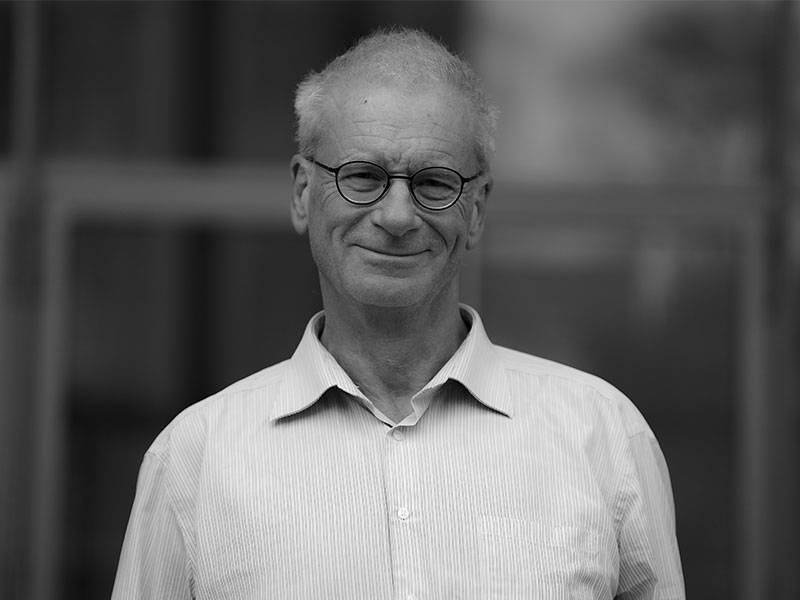
Hans-Bernd Brosius studied psychology and medicine at the Westfälische-Wilhelms University in Münster. He received his doctoral degree there in 1983. From 1983 to 1995 he was a postdoctoral fellow and – later on – assistant professor for communication studies at the University of Mainz. He received his secondary doctoral degree (Habilitation) in 1994. Since 1996, he has been a communication professor at the Department of Media and Communication (IfKW) at LMU Munich. From 1998 till 2002 he was chairman of the German Communication Association. From 2001 to 2021 he was dean of the faculty of social sciences. His research interests include media use, media effects, digitalization of mass media, and methodology.
Why is this project important to you?
Good science communication is crucial for modern societies around the world. We need more research on the antecedents, content, usage and effects of science communication on citizens, politicians, and institutions.
E-mail: brosius(at)ifkw(dot)lmu(dot)de
Prof. Dr Christof Mauch
Executive Board Member / Co-Applicant
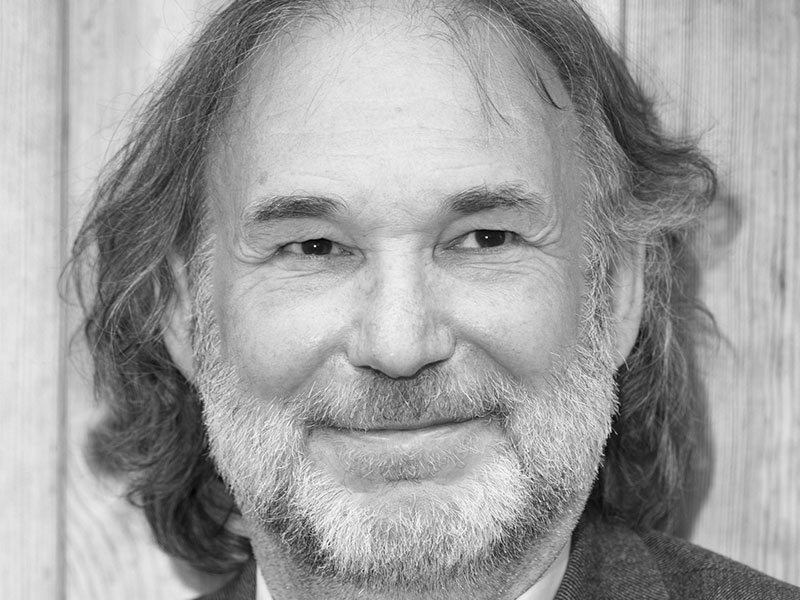
Christof Mauch started at LMU Munich in 2007 as the Chair in American Cultural History and founded the Rachel Carson Center in 2009. He is an Honorary Professor and Senior Fellow at the Center for Ecological History of Renmin University in China, a past President of the European Society for Environmental History and a former Director of the German Historical Institute in Washington, D.C. (1999-2007).
Why is this project important to you?
I feel strongly that, in order for humanity to survive on planet Earth, we need to understand – and properly communicate – the intrinsic connection between global ecological destruction and the well-being of the human (and more-than-human) species.
Website: Rachel Carson Center – Christof Mauch
E-mail: mauch(at)lmu(dot)de
Prof. Dr Helmuth Trischler
Executive Board Member / Co-Applicant
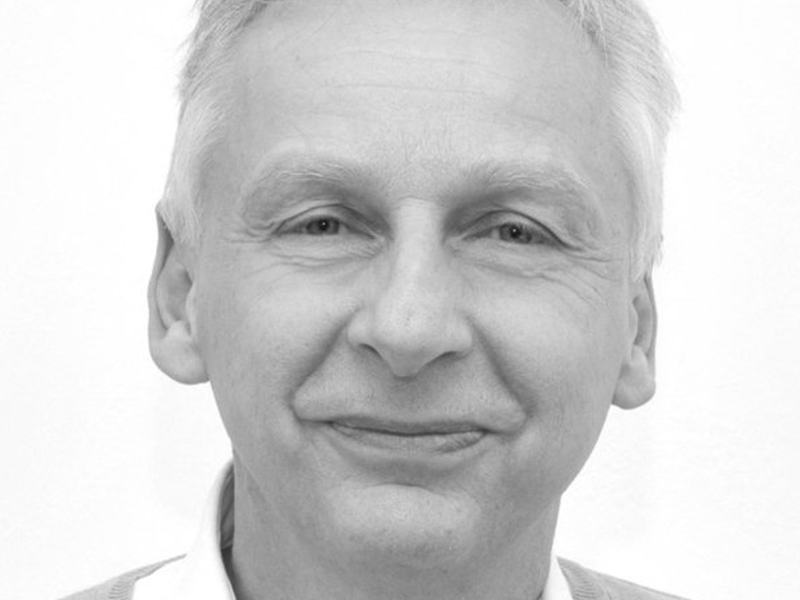
Helmuth Trischler is head of research at the Deutsches Museum, Munich and professor of modern history at Ludwig Maximilian University Munich. In 2009, he jointly with Christof Mauch founded the Rachel Carson Center for Environment and Society, one of the internationally leading centers for the growing field of Environmental Humanities. His main research interests are innovation cultures in international comparison; science, technology and European integration; evidence practices in science, technology and society; cooperation and competition in the sciences; and environmental history. He has conceptualized the world’s first major exhibition on the Anthropocene (Welcome to the Anthropocene. The Earth in Our Hands) on display at the Deutsches Museum 2014-2016.
Head of Research of Deutsches Museum; Professor of Modern History and History of Technology at LMU Munich; Co-Director of the Rachel Carson Center for Environment and Society
Website: Deutsches Museum – Helmuth Trischler
E-mail: h(dot)trischler(at)deutsches-museum(dot)de
Prof. Dr Eva Annette Rehfuess
Executive Board Member / Co-Applicant
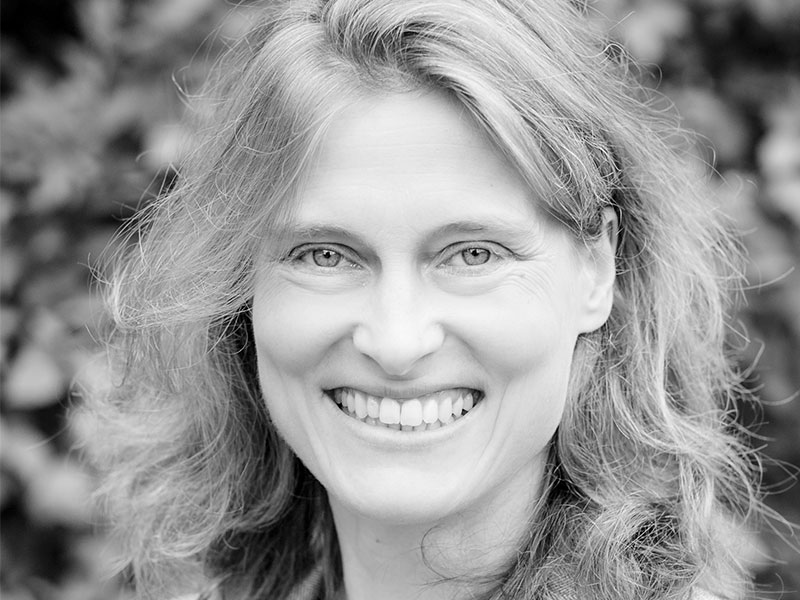
Eva Rehfuess holds the Chair of Public Health and Health Services Research at the LMU Munich and is spokesperson for the Pettenkofer School of Public Health in Munich, Germany. Nine years of working for the World Health Organization inspired her keen interest in methods for evidence-based public health and her passion for global health with thematic foci on environmental health, public health nutrition, child health and COVID-19. Much of Eva Rehfuess’ research relates to the evaluation of complex interventions in complex systems, in Germany and Europe as well as in low- and middle-income countries.
Why is this project important to you?
Planetary health represents the greatest challenge of our time: the health of current and future generations of human beings relies on a habitable planet. Effective communication is essential for making the connections between human health and the health of the planet apparent – and for achieving an urgently needed societal transformation. This will greatly affect the way we live, work, eat and move: it will mean sacrificing some of the things and habits we love; but it will also mean exploring novel, cool, enjoyable approaches. For me, the MSCL represents a fantastic opportunity to collaborate with highly committed colleagues across a broad range of disciplines and institutions and to engage with the public through innovative, fun and impactful science communication experiments.
Website: LMU IBE – Eva Rehfuess
E-mail: rehfuess(at)ibe(dot)med(dot)uni-muenchen(dot)de
Prof. Dr Constanze Rossmann
Executive Board Member
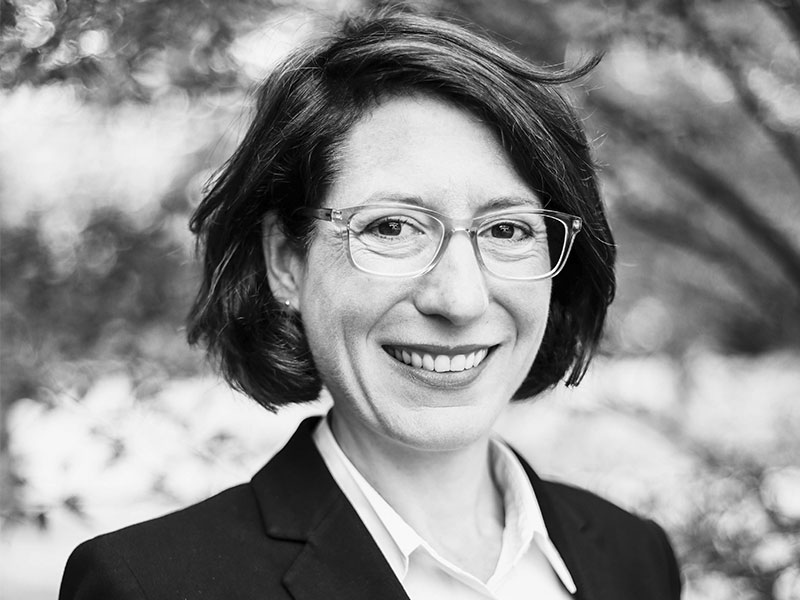
Constanze Rossmann holds a chair of communication at LMU Munich. She used to be professor of communication, vice dean for empirical research and vice director of the Erfurt Laboratory for Empirical Research at University of Erfurt until 2021, where she co-founded the Master Program Health Communication. She is also co-founder and former speaker of the Health Communication Division within the German Communication Association and associate editor of the European Journal of Health Communication. Her research interests include health and crisis communication with a focus on health-related media use and effects, health campaigns, and mobile Health.
Why is this project important to you?
I am specifically interested in the interaction between health and climate (communication), that is, how can health communication profit from emphasizing the positive and negative consequences, (un)healthy behaviors have for climate change and, vice versa, how can climate communication benefit from arguing with the health consequences of environmental friendly behaviors, and, finally, how can the fields of health and environmental communication grow together to integrate their expertise for better scientific answers to demanding social problems.
Website: LMU IfKW – Constanze Rossmann
E-mail: constanze(dot)rossmann(at)ifkw(dot)lmu(dot)de
Prof. Dr Lars Guenther
Executive Board Member
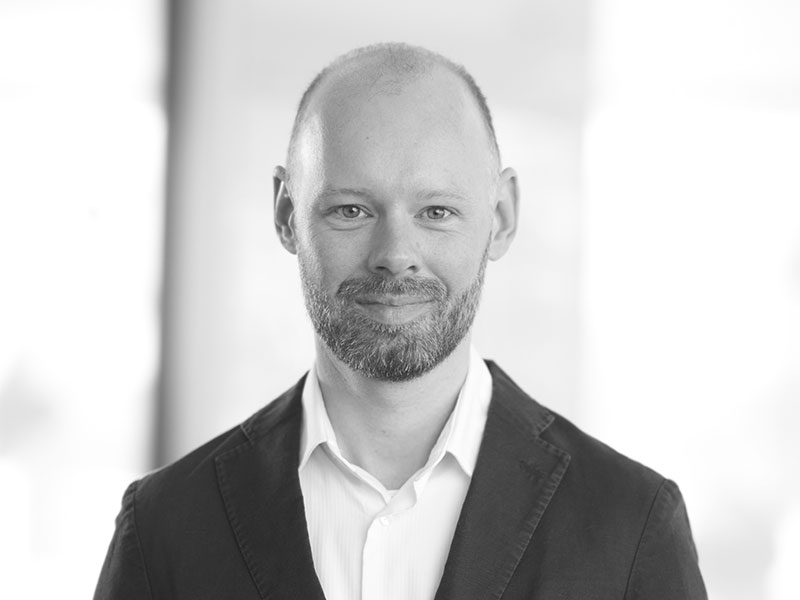
Lars Guenther earned his Ph.D. in 2015 from Friedrich Schiller University Jena, Germany. He is currently a Professor of Communication Science at LMU Munich’s Department of Media and Communication (IfKW) in Germany. Additionally, he holds the position of Extraordinary Associate Professor at the Centre for Research on Evaluation, Science, and Technology (CREST) at Stellenbosch University in South Africa. His research interests include public perceptions of (controversial) science, science and health journalism, trust in science, as well as public communication about risks and scientific (un)certainty.
Why is this project important to you?
Over the course of my professional career, science communication has gained importance. I am pleased that we are leveraging this momentum and, through the MSCL, bringing together researchers and practitioners from various fields to collaborate on something as crucial as planetary health. I feel honoured to be able to contribute to this.
Website: LMU IfKW – Lars Guenther
E-mail: lars(dot)guenther(at)ifkw(dot)lmu(dot)de
Dr Michael Apel
Executive Board Member
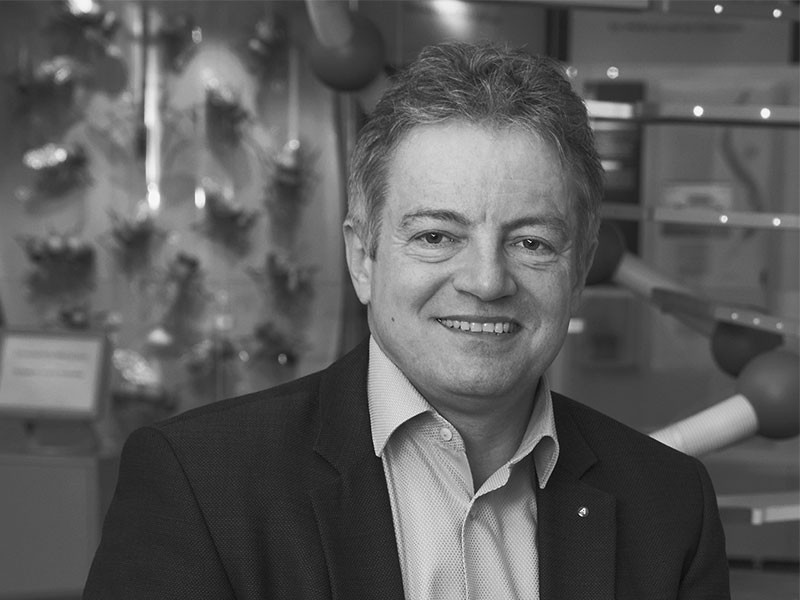
Michael Apel is head of the Museum Mensch und Natur in Munich and followed Michael John Gorman as head of the Naturkundemuseum Bayern within the Bavarian Natural History Collections (SNSB) in 2024. After studying biology in Frankfurt am Main, he was involved as a zoologist and marine biologist in major projects in Saudi Arabia and Yemen for the Senckenberg Research Institute and Nature Museum. As soon as during his studies, he discovered his interest and passion for science education and communication in museums. In 2003, he became Head of the Natural Science Collection at the Museum Wiesbaden before moving to Munich in 2006.
Why is this project important to you?
As a museum person, the most important questions you ask yourself are: How do we reach our audience, what impact do we have with our exhibitions and other activities, and how relevant is what we do for our visitors and the society? A better understanding of science communication processes and new, innovative, and empirically grounded approaches are therefore crucial to tackle today’s huge challenges like climate change, biodiversity loss, and ecological collapse in times of growing science scepticism and even denial.
Website: Museum Mensch und Natur – Michael Apel
E-mail: apel(at)musmn(dot)de
Fellows
Prof. Dr Michael John Gorman
Director of the MIT Museum
Prof. Dr Annette Peters
Chair of Epidemiology Faculty of Medicine, LMU Munich
Director of the Institute of Epidemiology, Helmholtz Munich
Dr Cecilia Scorza
Coordinator of public outreach and school contacts of the Faculty of Physics, LMU Munich
Prof. Dr Claudia Traidl-Hoffmann
Chair of Environmental Medicine, Augsburg University
Prof. Dr Georg Marckmann
Professor of Medical Ethics and Director of the Institute of Ethics, History, and Theory of Medicine, LMU Munich
Prof. Dr Gregg Mitman
Vilas Research and William Coleman Professor in History, Medical History, and Environmental Studies, University of Wisconsin-Madison
Guest Research Professor, Rachel Carson Center for Environment and Society, Munich
Prof. Dr Harald Lesch
Professor for Theoretical Astrophysics, LMU Munich
Professor for Philosophy of Science, Munich University of Philosophy
Dr Helen Fischer
Visiting Professor for Science and Society, KIT, Karlsruhe
Postdoctoral Researcher, Leibniz-Institut für Wissensmedien (IWM), Tübingen
Prof. Dr Imke Hoppe
Professor at the Geography Department, LMU Munich
Prof. Dr Julia Pongratz
Professor of Physical Geography and Land Use Systems, LMU Munich
Max Planck Institute for Meteorology, Hamburg
Dr Lara Urban
Principal Investigator, Helmholtz Pioneer Campus
Prof. Dr Martin Fischer
Dean of Studies for Clinical Human Medicine, LMU Munich
Prof. Dr Ophelia Deroy
Chair and Head of Philosophy of Mind/CVBE, LMU Munich
Members of the Advisory Board
Clare Matterson
Executive Director of Engagement, Natural History Museum London
Prof. Dr Jonathan Patz
Director of the Global Health Institute, University of Wisconsin-Madison
Prof. Dr Tony Goldberg
DVM, Professor of Epidemiology, University of Wisconsin-Madison
Prof. Dr Sabine Gabrysch
Head of Research Department 2 on Climate Resilience, Potsdam Institute for Climate Impact Research and Professor for Climate Change and Health, Charité Universitätsmedizin Berlin
Prof. Dr Bruce Lewenstein
Professor of Science Communication, Cornell University
Prof. Dr Dominique Brossard
Professor and Chair in the Department of Life Sciences Communication, University of Wisconsin-Madison
Alumni
Dr Jeanette Orminski
Former staff at the MSCL
Contact: jeanette(dot)orminski(at)gmail(dot)com
Dr Sabine Reich
Former staff at the MSCL
Contact: www.sabine-reich.com
Dr Clara Kühner
Former staff at the MSCL
Contact: clara(dot)kuehner(at)uni-leipzig(dot)de
Dr Thassilo Franke
Former staff at the MSCL
Contact: franke(at)snsb(dot)de
Paulina Schaaf
Former staff at the MSCL
Contact: paulina(dot)schaaf(at)badw(dot)de
Lena Maurer
Former student assistant at the MSCL
Contact: lena(dot)maurer(at)rolmail(dot)net
Matteo Vivi
Former student assistant at the MSCL
Bianca Busch
Former student assistant at the MSCL
Contact: LinkedIn – Bianca Busch
Katharina Rödel
Former student assistant at the MSCL
Contact: katharina(dot)roedel(at)campus(dot)lmu(dot)de
Christopher Kurth
Former student assistant at the MSCL
Michael Sterr
Former student assistant at the MSCL
Henri Wolferstetter
Former student assistant at the MSCL
Luana Laba-Gödri
Former student assistant at the MSCL
Lenn Milke
Former student assistant at the MSCL
